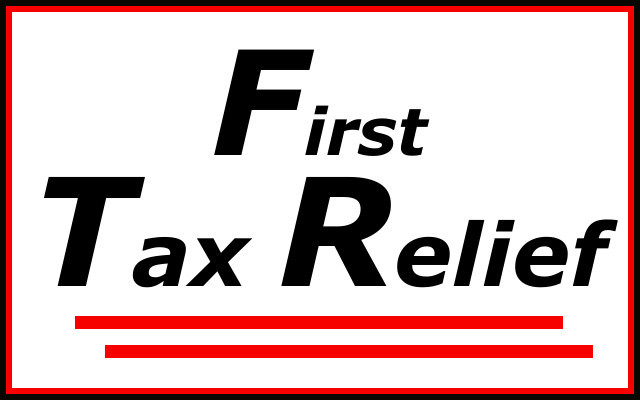It’s increasingly clear to all of us that our present “cultural moment” can take a toll on any Cleveland person’s mind who isn’t vigilant.
Constant connectedness to those who are (by their very vocation) incentivized to highlight change, chaos and fear is more dangerous than I believe we realize. There are so many negative voices out there, that if they are your sole informational “diet”, your state of mind will be seriously affected.
Maybe this summer we should all go through our mental and emotional “inbox” and do some serious “unsubscribing”.
Which isn’t to say that there’s nothing to be concerned about for the direction of our country, and our state. But I simply want to suggest this for you — be on guard about how this media (and social media) cycle is affecting your mind. And filter accordingly. ESPECIALLY, if your confidence is being shaken, or you’re a Cleveland business owner … and you must make decisions that affect your bottom line.
Make sure you have voices that are BUILDING you.
So, speaking of building you … there are many things that a Cleveland business should reassess after the tax deadline, especially with the new legislation in effect.
I have thought of five areas that would be a good place to start, and if any of this seems like something you and I should discuss, shoot me an email using the link at the top of the page, and let’s set up a time.
Five Financial and Tax Strategies For Cleveland Small Businesses
“The noblest pleasure is the joy of understanding.” – Leonardo da Vinci
With the personal tax deadline behind us, and with brand new tax legislation to consider, we find ourselves in the perfect time to reassess where your Cleveland company’s tax strategy is taking you.
For many, these are “training wheels” suggestions (i.e., your issues are much more complex, and a deeper dive is necessary), but even for certain well-established businesses, it might make sense to take a look at a few tax strategies together. We can start here:
1) Your expenses
If your Cleveland business is somewhat small, and doesn’t create a significant trail of automatic third-party tax documentation, then you might find yourselves someday in the crosshairs of IRS scrutiny. But looking at this area would not just serve the purpose of beating an audit — it’s always a good idea to have monthly clarity (at the minimum) for where your revenue is going.
Now’s the time to make sure you have a good expense tracking system, receipt documentation and other cash controls in place so that you can not only prove your numbers when called upon by Uncle Sam, but even more importantly, that you can keep a firm grasp on your profit.
2) Are you taking every deduction?
A quick example that comes to mind — claiming your home office. Even in larger businesses, the rise of telecommuting means that there are often good deductions to be found in tracking and recording the work done from home. Yes, it can be an audit “red flag”, but that’s only if you don’t claim it properly. This deduction went away for employees under the new tax legislation, but is still very much in place for the Cleveland business owner. It’s just one of the many great tax breaks available in the code, that aren’t terribly complicated but that a good professional (ahem) can easily ensure is getting taken in the most effective and ethical way.
3) New depreciation rules, and inventory management
These can have a significant impact on your Cleveland company’s tax liability — for good, or ill. Many small- and medium-sized businesses are still using outdated inventory management systems (or they aren’t using available software) and/or they aren’t thinking through depreciation tax strategies versus other kinds of asset models.
Depreciation rules have shifted in very advantageous ways for certain small businesses under the new tax legislation, so taking a fresh look might be very profitable for your business.
Again, these are basic questions for a professional, and can save your company boatloads … but only if you have someone who knows that they’re up to running the point.
4) A new entity structure?
So, when your company was young, it very likely started out as a sole proprietorship and you filed Schedule C as part of your personal return. That’s perfectly fine in many situations.
But have you grown out of it? Very possibly. What’s really important here is that you have someone who can dig a little bit into your business model and structure and propose the most advantageous entity. Sometimes the information on the internet (or, ahem, LegalZoom) isn’t as appropriate as you might think. Don’t jump quickly to a new entity (or naively remain in a poor one) without getting some clear advice from someone who deals with these issues on a daily basis.
And with the new 20% pass through deduction (which I mentioned in a recent note), switching entities can be very attractive … but there are “complications”:
For instance, there are caps and phase-out amounts that must be calculated when claiming it. The caps are $157,500 of total taxable income for a single taxpayer or $315,000 of total taxable income for married filing a joint return.
When your earnings exceed those caps, you can only claim a partial deduction. Arriving at that amount means more calculations, including consideration of depreciable assets.
Note, too, this is a deduction against “total taxable income”. This is different from the usual standard of adjusted gross income, which determines certain tax deductions that may not be related to how you calculate qualified business income.
And don’t forget to take into account the limitations on the W-2 wages paid by the business.
Do you see that it’s helpful to have someone in your corner?
5) Retirement?
I know, I know … we’re keeping our powder dry (i.e., our money) so that we can make sure we are able to meet payroll and keep the Cleveland business running every month. But there are shifting regulations to take into account, and some better options to consider (perhaps) for your situation.
Overall, I’d like to make sure that you are clear with a strategy on EACH one of these topics.
Then, of course, we can dive even deeper and be even more aggressive.
But these areas are usually where a good review starts, and the best first step is a phone call: (833) Low-Taxx
Feel very free to forward this article to a Cleveland business associate or client you know who could benefit from our assistance — or simply send them our way? While these particular articles usually relate to business strategy, as you know, we specialize in tax preparation and planning for Cleveland families and business owners. And we always make room for referrals from trusted sources like you.
Warmly,
Rich Rhodes
(833) Low-Taxx
First Tax Relief






